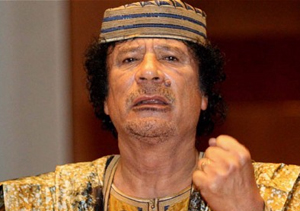Beijing, May 9: Mounting a strong defence of the ruling Communist Party of China, President Xi Jinping has said the COVID-19 fight has once again shown that the CPC leadership and the country's socialist political system can overcome any challenge.
Xi's comments came as China faced global criticism for its initial inaction to act against the novel coronavirus, which according to Chinese officials emerged in the central Chinese city of Wuhan in December last year.
Pressure is also mounting on Beijing to agree for an international probe on the origins of the vicious virus, including from the Wuhan Institute of Virology (WIV), as claimed by the US leadership.
China curbed the spread of the coronavirus in over a month and brought COVID-19 under control at its first epicentre in Wuhan in about three months, Xi, also the General Secretary of the CPC, said at a symposium held on Friday to get suggestions from non-ruling Communist Party of China (CPC) parties on COVID-19 prevention and control.
He termed the curbing of the COVID-19 pandemic as "hard-won achievements" for the world's most populous country and the second-biggest economy.
The COVID-19 fight has once again shown that the CPC leadership, China's socialist system and its governance system can overcome any challenge and make big contributions to the progress of human civilisation, he said.
Xi said China had basically curbed the spread of the virus in over one month, managed to bring the daily number of new domestically-transmitted cases down to single digits in about two months, and secured decisive achievements in protecting epicentres Wuhan and Hubei province in about three months.
"For a huge country with 1.4 billion people, these are hard-won achievements," he said
Besides the top CPC officials, the symposium was attended by members of the central committees of non-CPC parties in China, the All-China Federation of Industry and Commerce, and persons without party affiliation.
The speakers at the symposium praised the Chinese leadership in handling the crisis, saying it fully demonstrated the political advantage of China's socialist system and showed that China was a major responsible country.
Xi, who is also the head of the People's Liberation Army, praised China's one-party political system governed by the CPC.
His comments on the country's political system came as Beijing is also defending the role of the CPC as US President Donald Trump and Secretary of State Mike Pompeo have blamed the ruling party for not being transparent in the fight against the pandemic.
Both Trump and Pompeo have been pressing Beijing to allow American experts for a probe on whether the virus emerged from the WIV, China's premier research lab where viruses of different types are reportedly researched.
At the symposium attended by the top CPC officials, Xi's leadership came for praise for successfully handling the situation, the state-run Xinhua news agency reported.
"Attendees noted the major strategic achievements in the COVID-19 fight under the strong leadership of the CPC Central Committee with Comrade Xi Jinping at the core," the report said.
The meeting was held amid reports of murmurs of internal criticism within the CPC about Xi's handling of the coronavirus crisis.
While China's move of handling the coronavirus from January 23 by locking down Hubei province and its capital Wuhan to prevent the spread of the virus and curbing it by deploying 42000 medical personnel has been praised, Beijing is criticised for its slow reaction after it emerged in December last year.
China used less than a week to identify the full genome sequence of the novel coronavirus and isolate the virus strain, produced various testing kits and swiftly selected a number of effective drugs and treatments. Different types of vaccines have also entered clinical trials.
President Xi said during the COVID-19 fight, China upheld the centralised and unified leadership of the CPC and concentrated the nation's best doctors, the most advanced equipment and the most needed resources to treat patients, with all treatment expenses covered by the state.
It managed to maximise the testing and cure rates while minimising the infection and fatality rates.
As of Friday, the COVID-19 death toll in China remained at 4,633 with no new fatalities reported for several days while the total number of cases stood at 82,887. In contrast, Chinese officials point out the death toll in the US which has crossed 75,000 with over 1.2 million cases, besides the mounting global toll.
Almost all countries in the world have been under lockdown for weeks to control the spread of the virus.
Xi called for mobilising the whole society, leveraging the institutional strength of concentrating resources to get things done and tapping the composite national strength as well as closely relying on science and technology.
On international cooperation, Xi said China had helped countries and international organisations to the best of its ability, demonstrating the nation's sense of responsibility as a major and responsible country.
Xi also stressed fixing the shortcomings in the country's major epidemic prevention and control mechanism and for the national public health system to raise the ability to deal with major public health emergencies.
He emphasised on targeted and effective measures to guard against the importation of cases and prevent a resurgence of the epidemic.
 Sydney, Jan 27: After more than two years of capture and death of Libyan leader Muammer Gaddafi, details about his brutality towards young girls-turned-sex slaves have been emerging gradually.
Sydney, Jan 27: After more than two years of capture and death of Libyan leader Muammer Gaddafi, details about his brutality towards young girls-turned-sex slaves have been emerging gradually.




Comments
Add new comment